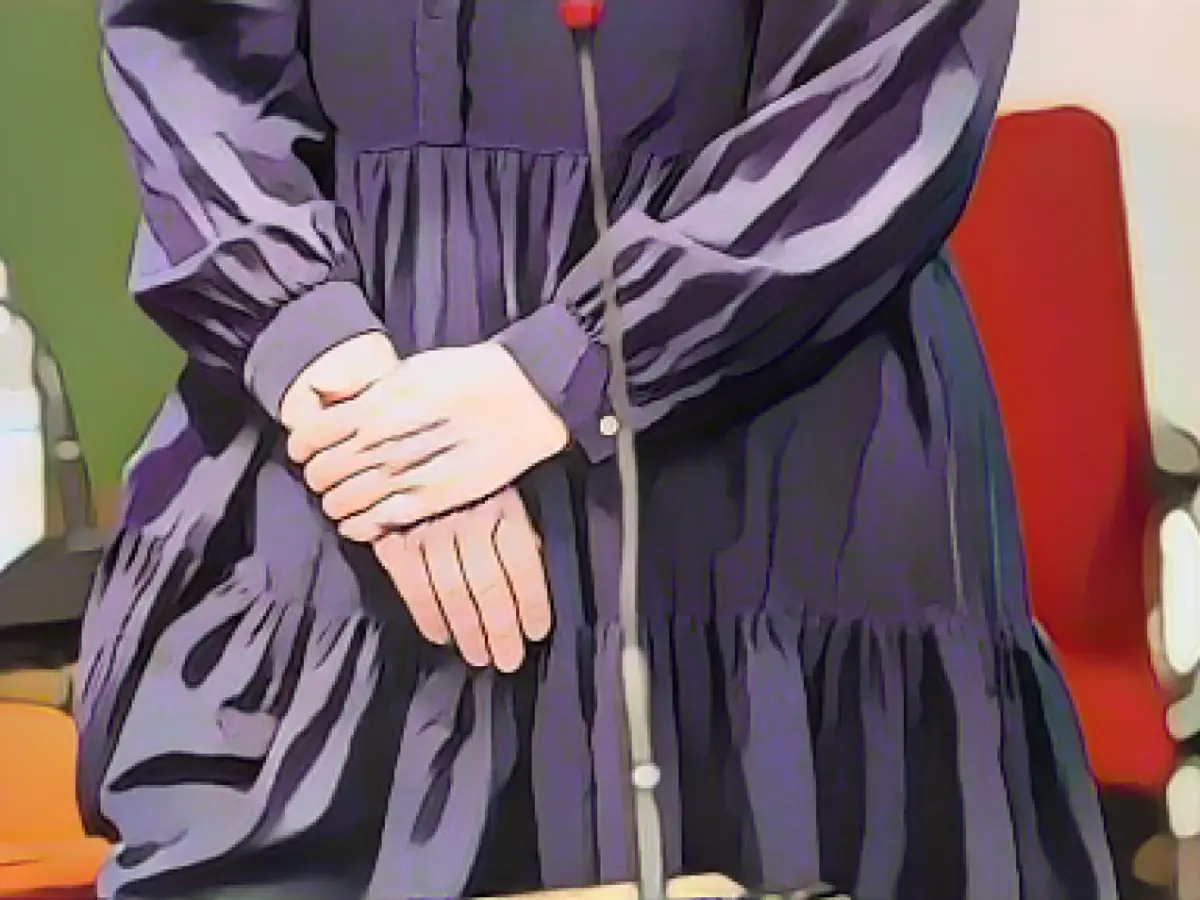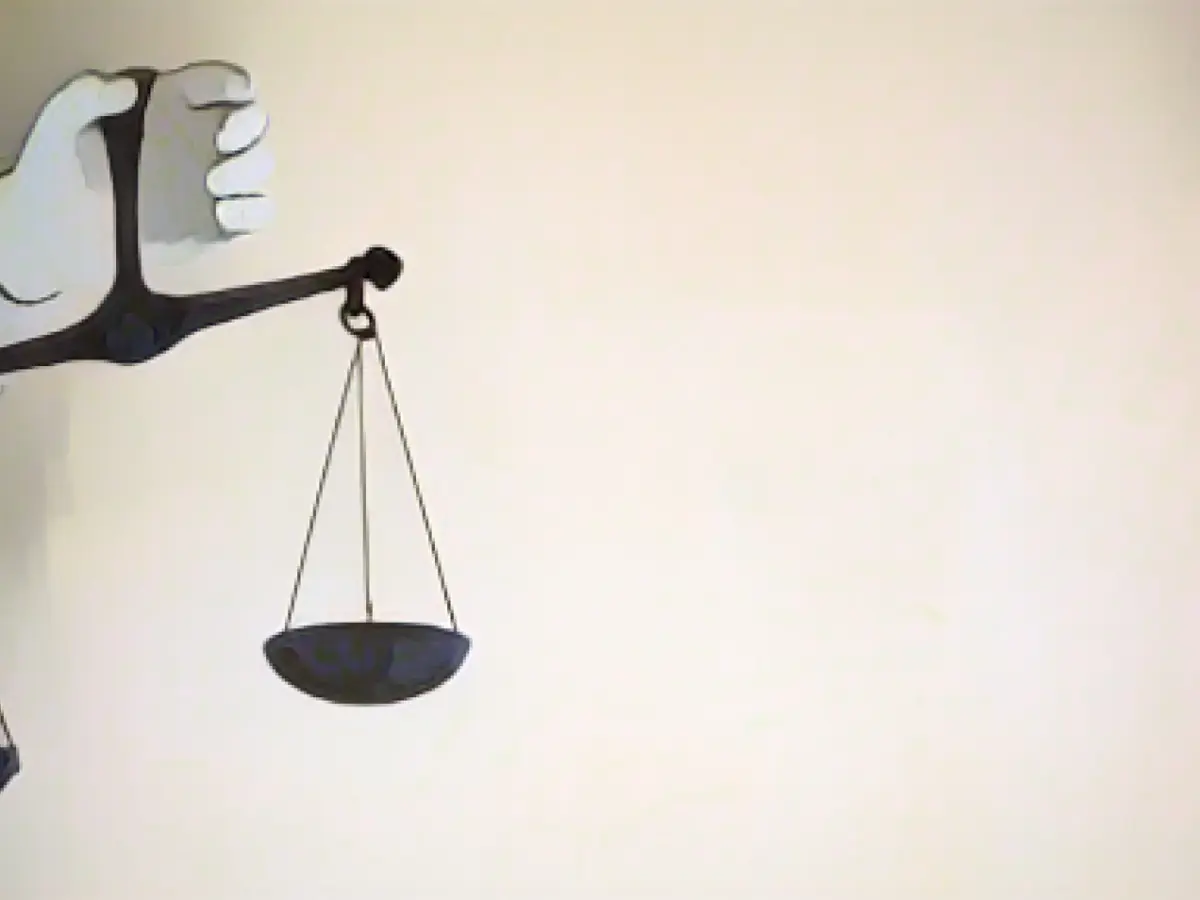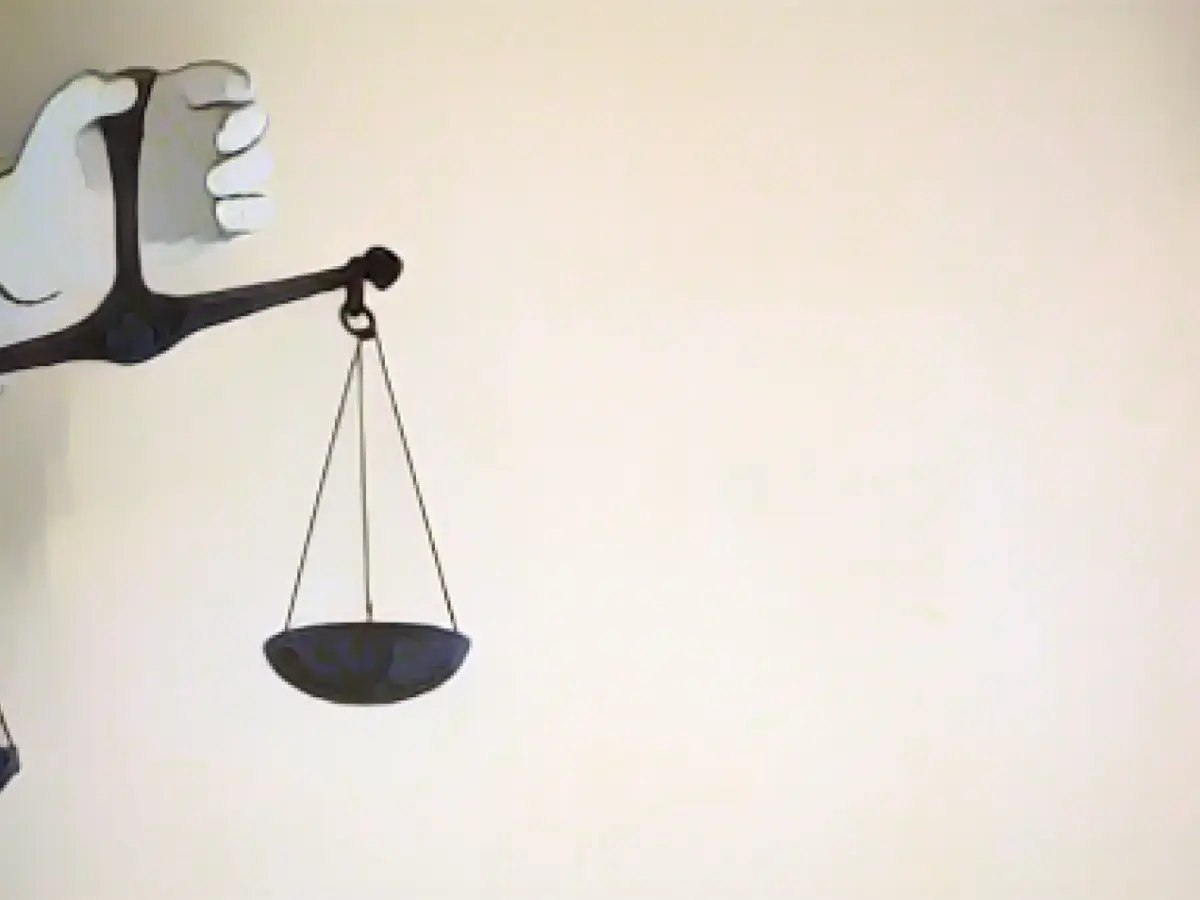Andrea Tandler's Day in Court: Four Years for Coronavirus Mask Affair
In a heartbreaking turn of events, Andrea Tandler, the daughter of a prominent politician, finds herself facing a bleak future. The Munich I Regional Court is set to sentence her to at least four years and three months in prison, as part of a plea bargain agreed to by all parties involved in the tax trial surrounding the coronavirus mask affair in Bavaria. Her business partner, N., will serve at least three and a half years.
Both Tandler and N. admitted their guilt through their defense lawyers, and they've already made amends for any tax losses incurred. The verdict is due to be announced on Friday.
Tandler faces a potential sentence ranging from four years and three months to four years and nine months. Her partner's sentencing range, as proposed by presiding judge Andrea Wagner, is three years and six months to four years. The prosecutor's office initially pushed for a sentence at the upper end of the range, but Tandler's defense team advocated for a lighter sentence.
Tandler played a pivotal role in broker deals for a Swiss mask supplier with various federal and state authorities during the beginning of the COVID-19 pandemic. The payments totaled almost 50 million euros, which, in itself, was legal. However, the prosecutor's office accused Tandler and N. of failing to pay the correct taxes on these commissions, thereby committing tax evasion.
The prosecutor's case against Tandler involved allegations of unlawfully paying taxes through a company rather than as an individual, thereby substantially reducing her overall tax burden. Tandler's partner, N., was accused of receiving half of the shares in a newly founded GmbH without prior contribution, a move that the prosecutor's office interpreted as tax evasion. Furthermore, the accusation of trade tax evasion hinged on the fact that income from the mask business wasn't taxed in Munich but in Grünwald, where a reduced trade tax rate applies.
The proceedings involving gift tax evasion and coronavirus subsidy fraud against Tandler and N. were dropped by the court with the consent of the prosecutor's office, as the defendants largely admitted to the tax evasion allegations.
While the court didn't specify the exact economic loss, the prosecutor's office put the figure at 7.8 million euros. This figure was revised following a change in a former donation and other factors.
Plea bargains are common in criminal cases, and they usually require defendants to confess their guilt. In exchange, the court offers a more predictable sentence, helping defendants avoid lengthier and more uncertain trials.
Related Stories
- A clan member's punishment takes center stage
- When talking to the police could land you in trouble
- Prospects of a conviction for Jutta's murder, 37 years later
- A lethal family feud uncovered
In Brief
- The tax trial for the coronavirus mask affair in Bavaria is being handled by the Munich I Regional Court.
- The prosecutor's office in Munich accused Tandler and N. of tax evasion, as they allegedly failed to correctly pay taxes on their commissions.
- The sentencing range for Tandler was originally proposed at four to four and a half years, while her partner's ranged from three and a half to four years.
- Tandler and N. admitted guilt through their defense lawyers and agreed to make amends for any financial losses.
- Gift tax evasion and coronavirus subsidy fraud charges were dropped, as both parties admitted to tax evasion allegations.
- This case highlights the importance of correctly paying taxes and avoiding criminal charges, as both Tandler and N. are now facing severe consequences due to their tax evasion.
- The judge, prosecutor's office, and defendants reached a plea bargain, with the court to announce the sentence on Friday, potentially impacting their future.
Source:
Enrichment Data:
The source information provided does not offer a specific case involving Andrea Tandler or N. in a coronavirus mask tax evasion case in Bavaria, Germany. The information available focuses more on the broader German government's response to the COVID-19 pandemic, including measures, court rulings, and issues related to protective equipment. Without further investigation, it's challenging to provide definitive details about an individual case of tax evasion in this context.








